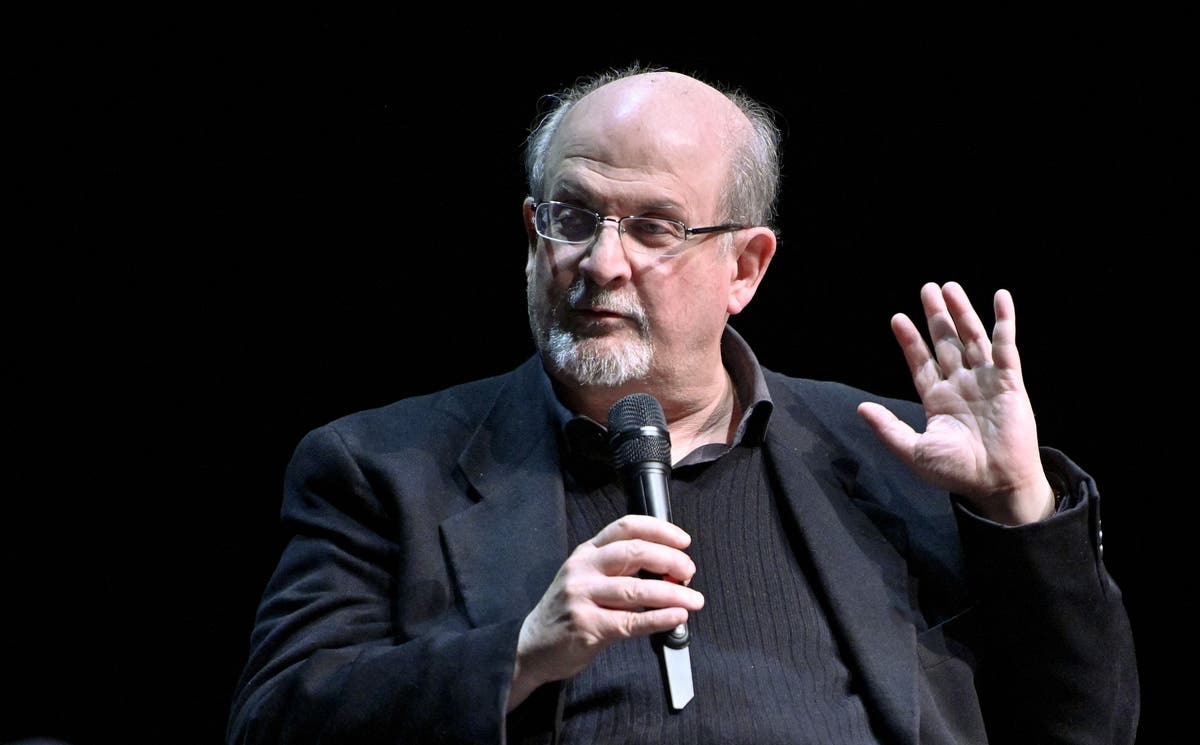
Sign up to our Evening Headlines email for your daily guide to the latest news Sign up to our free US Evening Headlines email Please enter a valid email address Please enter a valid email address SIGN UP I would like to be emailed about offers, events and updates from The Independent. Read our privacy notice Thanks for signing up to the
Evening Headlines email {{ #verifyErrors }}{{ message }}{{ /verifyErrors }}{{ ^verifyErrors }}Something went wrong. Please try again later{{ /verifyErrors }}
When Salman Rushdie was forced into hiding on Valentine’s Day, February 1989, it was not just the biggest cultural story of the moment; it was the biggest political story too.
Mine was one of the bylines on The Independent’s front-page lead story that night of Iran’s fatwa urging the assassination of the novelist, over the content of the author’s fourth novel published in 1988. The Satanic Verses, which included dream sequences containing the prophet Muhammad, had sparked outrage among some Muslims, who considered its content to be blasphemous. An interview with the writer was what everyone wanted, and the founding editor of The Independent, Andreas Whittam Smith, strode over to my desk the next morning and said: “I’m relying on you to find him” – quite an ask.
It tends to be forgotten now, but the government of Margaret Thatcher, though providing police protection and safe houses for Rushdie, was no great defender of the novelist. In a series we ran called Heroes and Villains, government minister Norman Tebbit nominated Rushdie as his “villain”. Another cabinet minister, Sir Geoffrey Howe, told the BBC that the book had compared Britain to Nazi Germany.
But Rushdie was far from friendless. The arts world was vociferous in his defence, and horrified at public burning of The Satanic Verses in Bradford and marches with banners of Rushdie with a noose around his neck.
Rushdie occasionally came out of hiding during his decade in safe houses and I was present at two of those occasions, when he addressed meetings of both supporters and detractors. At the conclusion of the meetings, Special Branch whisked him back. Rushdie was to say later how conflicted he felt, having been critical of the police to now find them his protectors, companions and friends.
Rushdie was one of a glittering array of young novelists that included Martin Amis and Ian McEwan whose work dominated the literary landscape of the last decades of the 20th century. Born in what is now known as Mumbai, his second novel Midnight’s Children, published in 1981, was a spectacular blend of historical fiction and magic realism, a great exploration of Partition, its horrors and the psychological traumas it left for those in India at the time. It won not just the Booker Prize, but on two subsequent occasions the Booker of Bookers, a prize given for the novel deemed to be the finest of all the Booker prize winners hitherto. It was an astonishing progression for a man who started as a copywriter for an advertising agency, coming up with the then famous slogan for fresh cream cakes: “Naughty. But Nice.”
There were protests and marches in Britain, riots – with deaths involved – in other nations and the targeted killing of the book’s Japanese translator. The book was banned in numerous countries.
Rushdie was at first his usual defiant self, saying: “Frankly I wish I had written a more critical book,” but as his exile stretched on, he embraced Islam in an attempt to be done with the controversy. But it did no good. By 1998, a new regime in Iran declared the end of the fatwa, and Sir Salman, knighted in 2007, eventually moved to the US, where he felt he would be safe.







